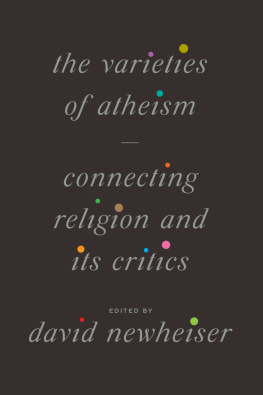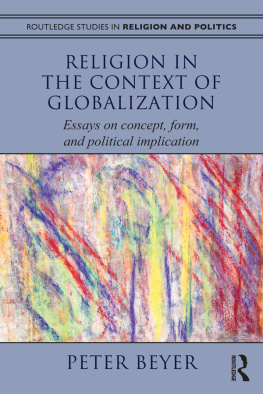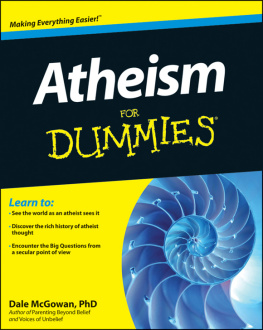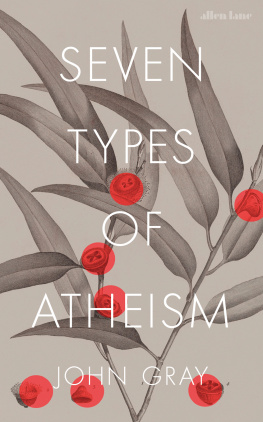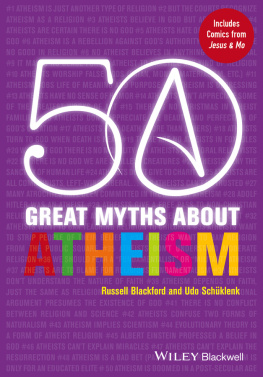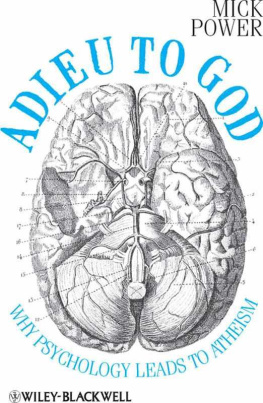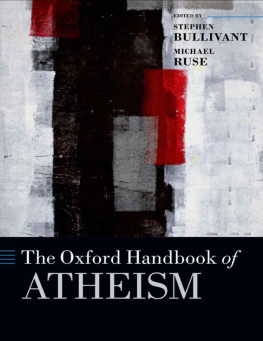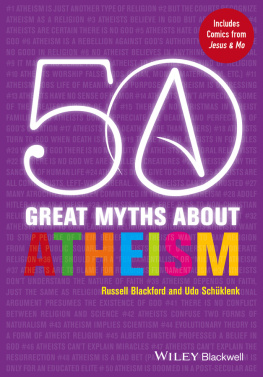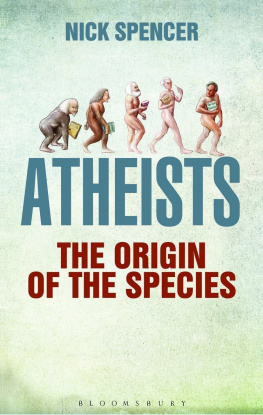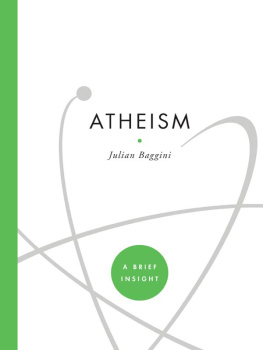Religion and Its Others
Studies in Religion, Nonreligion and Secularity
Edited by
Stacey Gutkowski
Lois Lee
Johannes Quack
Volume
ISBN 9783110546378
e-ISBN (PDF) 9783110547085
e-ISBN (EPUB) 9783110546552
Bibliographic information published by the Deutsche Nationalbibliothek
The Deutsche Nationalbibliothek lists this publication in the Deutsche Nationalbibliografie; detailed bibliographic data are available on the Internet at http://dnb.dnb.de.
2020 Walter de Gruyter GmbH, Berlin/Boston
This book is the book of truth Introduction
Jenny Vorpahl
Dirk Schuster
Preliminary remarks
Dieses Buch ist das Buch der Wahrheit. How this storyline of progress is reproduced by nonreligious and religious agents during and after the socialist period varies from acceptance right up to rejection or ignorance.
Our aim is to investigate the truth claims of worldviews within contexts shaped by the Soviet socialist system. We seek to extract characteristics of the legitimation processes and changes emerging in religion-related discourses actually operating in these societies before and after 1990. Against all odds, religion did not dissolve under socialist conditions to the extent that might have been expected. The relation between religious and nonreligious concepts has always been an issue.
Encounters with colleagues at conferences in Zadar, Helsinki, Jerusalem and Tartu
Jan Tesa also chooses a comparative approach when investigating the relevance of scientific atheism as part of knowledge production about religion in the Soviet Union and Czechoslovakia before 1991. Tesa criticizes previous (Czech) works on this topic since the breakdown of the Iron Curtain, because they
[evaluate] the past development of the esoteric thought style not from the perspective of historical actors but from the current perspective of the dominant discourse, which in the Czech Republic is at least partially in its anti-communist phase.
Interestingly enough, his book reflects exactly the still prevailing tendencies in scholarly works on religion, nonreligion and atheism in the Eastern Bloc between 1945 and 1991 that Smith criticized in his introduction: the exaggeration of religion and scientific atheism as distincted fields, the focus on developments on the political and organizational levels as well as the recurrent reference to the Soviet Union as the decisive framework for comparison in this field of research if a comparative study is sought, it takes place in relation to the Soviet Union as policymaker for this region and benchmark for research.
That is why we are using a different starting point for our project taking up the approach of Betts and Smith: We focus on the technologies of knowledge transfer by analyzing discourses about religion, atheism and science in different media and from different viewpoints. Therefore, we assembled colleagues who investigate historical as well as recent phenomena in former socialist nations, testifying the transfer of knowledge regarding religion and atheism. The scope of this volume is thus defined by the historical watershed before and after socialism.
On the methodological level, the sociology of knowledge approach to discourse as a combination of the sociology of knowledge and discourse analysis defines the frame for this project. This approach explains the focal points of this volume: Agents and organizations, seen as responsible and competent in producing knowledge about atheism and religion, express ideological claims and regulate which truths are published by which media. According to political and social changes, the roles of experts shift from scientists to clerics, from religious to nonreligious agents. Attempts to achieve homogenization meet with tendencies toward pluralization, questioning and withdrawing into the private sphere or internal distancing. The only constant is the necessity of adapting policies and methods of transmitting knowledge and reformulating ideas and principles according to the current balances of power and the reception of beliefs, norms and identity models by individuals.
Religion offers theoretical as well as practical answers to existential questions. It provides a symbolic universe, which integrates and legitimizes every sector of the institutional order and all human experience in an all-embracing frame of reference.
These theoretical reference points help concentrate the focus on the framework conditions, methods and mechanisms by which concepts of atheism and religion were constructed, transmitted, perceived and transformed. Therefore, the negotiation and construction of truths, patterns of action and interpretive frames are always re-bound to the cultural and institutional frame. To investigate examples of the respective religion-and-atheism discourse, we focus on the following questions:
What was/is said about religion and atheism and what should have been said according to the ideological claims?
Where are the distinctions between religious and atheist worldviews, and are there compromises or blendings, combining different traditions?
Which educational norms and ideals are derived from the specific concepts of religion and atheism?
Which phenomena can be interpreted as the result of national or individual developments of a Marxist heritage?
Do atheists understand religion in primarily theistic terms?
A historical watershed 100 years since the October Revolution
With the takeover of power in Russia by the Bolsheviks in 1917, a state structure emerged for the first time in which Marxism, complemented by Leninism, became the decisive ideological framework for a nation.
Fundamental for these dynamics in the religious field was the functionalist interpretation of religion by Karl Marx. According to his theory, institutionalized religion served the exploitation and oppression of the poor by the ruling class. Its alleged central functions were the negation of human dignity and capabilities, as well as the creation of an illusory fantasy in order to keep people servile and amenable to accepting the status quo. This was characterized by suffering due to their alienation from the products of their labor and from themselves as human beings. With the propagated aim of abolishing class distinctions in socialism, religion would lose these functions and would disappear over the medium term in a process of erosion.
Since religion did not immediately disappear with the takeover and consolidation of power by communist parties in Soviet-influenced states, the new rulers not only put pressure on institutionalized religions, but also relied on the dissemination of knowledge. Forms of atheistic propaganda were based on the assumption that religion is an
anachronism, namely [] something that is still present at the present time, but actually comes from the past and has no future. [] Once science and, with it, the enlightenment of society as a whole has progressed far enough, there is no longer a need for that backwardness which is offered as religion.
Hence, a primary concern for the socialist rulers was imparting a scientific interpretation of the world.
On the political level, Soviet prescriptions made it hard for national government policies in the Eastern Bloc to create individual concepts. However, especially in the field of religious policy, national representatives had a certain scope within which to establish their own concepts of religion and atheism, and to react to social developments in religious discourses and fields of action.


